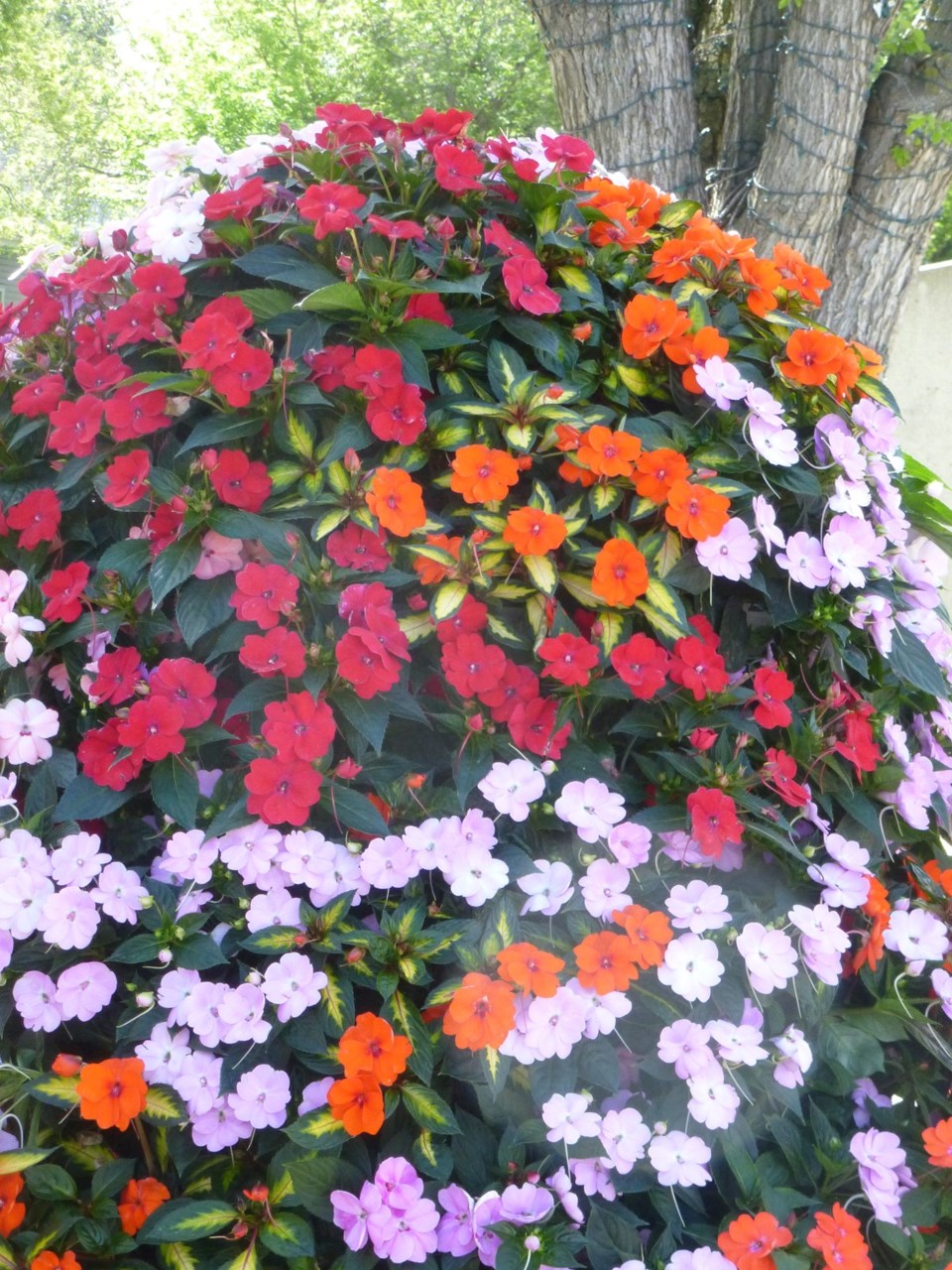YORKTON - When it comes to gardening, there is always something new under the sun! During a recent visit to Edmonton, we of course had to visit the Muttart Conservatory. The first thing we saw, even before we walked in, was a stunning display of New Guinea isunpatiens growing a mass planting in a six-foot cone-like structure. The luxuriant planting of the lush dark-green foliage and the bright blooms was truly an eye-catcher!
So, what is the difference between the regular garden-variety impatients and the New Guinea sunpatiens? These stunning plants originally come to us from Â鶹´«Ã½AVern Asia and Africa. The family is a big one. If your garden reading has mentioned the term “touch-me-not” flower, it is the impatiens plants that are being referenced! Why do they have this odd name? Because the seeds are very small, and when they are ripe, the tiniest touch will have them sprinkling out into the garden!
(Just a little garden factoid: many gardeners have a plant known by several names; “orchid plant” is a popular one. The plant grows several feet tall, has pinkish-purplish blooms, and seeds itself very easily. This plant is a relative of the impatiens and is called Impatiens glandulifera, the “Himalayan balsam”, and because of its invasive tendencies, it is banned in parts of the US and also banned in the EU! Imagine that!)
Regular impatiens have soft green leaves, about one to two inches wide, and the flowers can be double but are quite often singles, in a multitude of bright colours ranging from white to pinks to purples and electric tangerine shades. They are fond to partial shade conditions, in damp soil. Not wet! They don’t like to have wet feet. If they get a little gangly we can pinch them back and they will do just fine. And they will give us a real display of beautiful blooms!
New Guinea sunpatiens look slightly different. The glossy leaves are slightly longer in shape, and the flowers are slightly bigger as well, and quite flat. It is the variegation and beautiful coloration in the leaves that is the real giveaway of the difference in variety, and also that the new guineas may not have quite as many blooms as their cousins. They grow a bit taller than regular impatiens and will tolerate a bit more sun. A “bit” of sun is an important thing to remember. The plants are tender and can actually experience something similar to sunburn; this condition makes the leaves turn brown, and if it happens, move them to a shadier spot.
Whichever you choose, you will be given a bright and beautiful show of lovely flowers!
Did you know that June 30 is Asteroid Day? In 2016, the United Nations declared the day as a chance to “observe each year at the international level the anniversary of the Tunguska impact over Siberia…on 30 June 1908, and to raise public awareness about the asteroid impact hazard." That event was the Earth's largest asteroid impact in recorded history. It is astonishing to learn that there are over one million asteroids that could potentially hit the earth , and scientists know about only one percent of them. It sounds like an action movie, doesn’t it (and the theme was indeed in the movie ‘Armageddon’). It is one more example of how fragile our earth is, reminding us to nurture and care for it, and above all, appreciate it! Visit the hort society at www.yorktonhort.ca and see what’s new. Thank you to our friends at YTW for their wonderful work each week. Gardeners, enjoy time in your garden and savor the new beauty that is out there every day! Have a great week!






